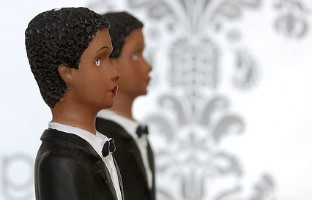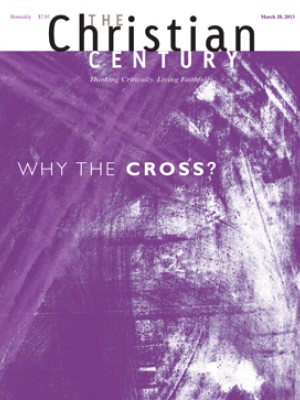Blessing gay marriage
This month the legal status of laws prohibiting same-sex marriage will be considered for the first time by the Supreme Court. Though the Court may decide the two cases before it on narrow technical grounds, the underlying issue is whether gays have a constitutional right to marry.
It’s remarkable not only how much public opinion has recently shifted toward endorsing gay marriage, but how thin are the legal arguments now arrayed against it. Neither the brief offered by ProtectMarriage on behalf of California’s Proposition 8 nor the one by House Republicans on behalf of the Defense of Marriage Act attempts to argue that same-sex couples are a threat to society or children. The House brief simply asserts that it is “rational” to believe that children fare better when raised by biological parents of both sexes—without marshaling much evidence for this view.
Read our latest issue or browse back issues.
Both briefs introduce as part of their case against same-sex marriage a curious new argument about the “social risks” presented not by homosexual couples but by heterosexual couples. The point is that reckless sexual relations between unmarried heterosexuals can produce unintended offspring, which are a potential burden to society, whereas reckless sex between homosexual couples doesn’t pose this threat. Therefore, the briefs say, society has reason to offer heterosexual couples, not gay and lesbian couples, the distinct benefits of marriage.
One immediate objection to this inverted argument is obvious: Why should gays and lesbians be denied the benefits of marriage because they don’t present the same social risks that heterosexuals do? In any case, denying gay couples the right to marry would not do anything to steer reckless sexually active heterosexuals toward the responsibilities of marriage.
Whatever decisions the Court makes on the legal status of same-sex marriage, religious bodies are entitled under the First Amendment to articulate and live out their distinctively theological understandings of marriage. The question posed to Christians is whether the procreative possibilities of marriage are a necessary and defining element of the institution as understood theologically.
Inside and outside the church, marriage has long been defined as the lifelong commitment of two people to sharing all things in life—children, property, money, joys, sorrows, poverty, prosperity. What Christians have added to this general understanding is not an insistence on procreation but rather an insistence that marriage mirrors in some way God’s fidelity to creation and to God’s people. Because marriage reflects God’s faithfulness, Christians believe that living out an unconditional lifelong commitment to another person offers a way of living more deeply into God’s purposes for one’s own life. Marriage offers a path leading one out of selfish desires into greater concern for the welfare of others. That distinctively Christian understanding of marriage would not be damaged by a legal endorsement of same-sex marriage. It could even be enhanced.






